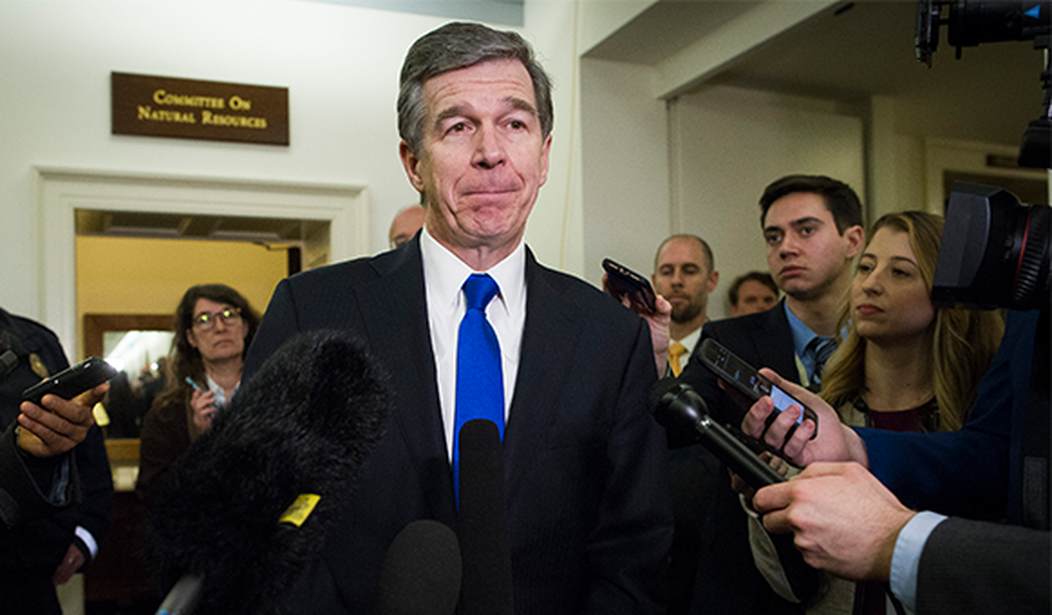My state’s governor, Roy Cooper, recently wrote for CNN that two election reform bills being considered by the North Carolina legislature would “limit access to the ballot box and sow chaos in our election certification process.” In fact, those bills will make our elections better run and more secure.
Cooper first claimed that one of those bills, Senate Bill 747, would help Republicans win elections by “targeting young and nonwhite voters.” Yet he offered no explanation of how the bill would supposedly do that. Anyone familiar with the bill would have to conclude that he just made it up.
He did, however, provide two specific critiques of the bill. One was misleading, and the other was simply wrong. Cooper’s misleading claim was that the legislation would “shorten the time an absentee ballot can be accepted.” He failed to mention two things about that change.
First, the bill would move the deadline for election officials to receive mail ballots to Election Day. It’s currently three days after Election Day.
Allowing regular mail ballots to be accepted after Election Day has created confusion (i.e., “sown chaos”) by forcing a dependence on postmarks. It has produced situations such as election officials reviewing ballots after postal workers stamped incorrect postmarks on them and campaigns issuing protests to election boards about when ballots were “in the mail stream.” For those reasons, most states require that mail ballots be received by Election Day. It also gives mail ballots the same deadline as ballots voted in person.
Recommended
Second, Cooper failed to mention that North Carolina sends out and accepts absentee ballots 60 days before Election Day. That’s an acceptance period longer than in all but two states. Even with the change to accepting ballots by Election Day (as most states do), North Carolina would continue to have one of America's most prolonged mail ballot acceptance periods.
The governor careened from misleading to flat-out wrong with his claim that a signature-matching pilot program in the bill would “make it too easy for absentee ballots to get thrown out for minor errors.” As the bill states explicitly in Section 48.(c), “no executed mail-in absentee ballot shall be rejected by the county board of elections for failing any signature verification.” Cooper’s continued mischaracterization of the signature verification portion of the bill earned him a “False” rating from PolitiFact.
The bill also includes a host of other reforms that would improve North Carolina elections, such as banning the influence of private funding of election administration (such as the notorious “Zuck bucks”), clarifying what election observers can and cannot do, and requiring the State Bureau of Investigation to inspect reported instances of election crimes.
Cooper showed even more ire toward Senate Bill 749, mainly because it threatens his privileges and power.
That bill would make the State Board of Elections and all county election boards bipartisan, requiring an equal number of members from the Democratic and Republican parties. Currently, they are controlled by the governor’s party. Cooper claimed the change would create gridlock on election boards. There already is gridlock on those boards, however, but only on ideas from Republicans. A system in which both parties must reach a compromise on election administration would be an improvement over the current one in which the governor’s party can run roughshod over election administration.
One point where Cooper is probably correct is his objection to the legislature taking over appointment power for election boards. That is an administrative function that is properly reserved for the executive branch. Moving that authority to the legislature would be almost as inappropriate as the executive branch using a sue-and-settle scheme to alter established laws, something the Cooper-controlled State Board of Elections did before the 2020 election. That 2020 settlement was made with the lawyer from Cooper’s 2016 campaign.
Cooper is hardly the first to claim that a post-2020 election reform bill would be “an attack on free elections.” The Georgia legislature passed the Election Integrity Act of 2021 in response to the problems they saw in the 2020 election. Leftists responded predictably by calling it “modern-day Jim Crow” and “an assault on our democracy” that would suppress votes.
Those prophecies of doom, like Cooper’s, were wrong. Georgia led the Southeast in turnout in the 2022 election, including record-high early voting. A federal court upheld almost all of Georgia’s election reforms in an Aug. 18 ruling.
Cooper’s screed against election reform in North Carolina is not about protecting our elections. It is just part of an attempt by a lame-duck governor to cling to power.
Andy Jackson is the Director of the Civitas Center for Public Integrity at the John Locke Foundation in North Carolina.

























Join the conversation as a VIP Member